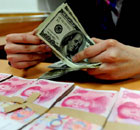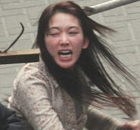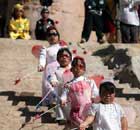-
-
China Daily E-paper
Op-Ed Contributors
Be a sport and let sport be itself
By Ma Chao (China Daily)
Updated: 2010-04-08 07:50
 |
Large Medium Small |
Editor's note: The decades-old juguo system in China has helped China win many Olympic glories, but the price for this Olympics-oriented sport system is also extremely high. After the triumph in the Beijing Olympic Games, we should shift our focus to popular sports and return the sports to its original essence.
Zheng Yefu gets passionate when he talks about sports. The Peking University's professor of sociology is nearing 60 but he is still an avid sportsman. He is an excellent swimmer and jogs regularly. He is a prominent sport commentator, too.
Since the Department of Sociology was under renovation, Zheng suggested the interview with China Daily take place in a temporary office in Peking University Gymnasium, one of the 37 venues of the 2008 Beijing Olympic Games. This is where China's table tennis team won four gold medals. In this very gymnasium, Zheng talked about how to dismantle China's Olympics-oriented sport system and build a more complete structure.
Chinese people call the Olympics-driven system juguo tizhi (whole nation regime). The State spends staggering sums of money on specialized athletes, coaches, officials and other staff in order to win as many medals as possible at the Olympics, Asian Games and other regional and international tournaments.
|
||||
But success has come at a high price. The money poured into the juguo system has been astronomical. During the 2004 Athens Olympics, Li Liyan, a writer and researcher with the General Administration of Sports, estimated that China spent 700 million yuan ($103 million) on average to win just one Olympic gold medal. For a country with a large number of poor people and vast areas with poor infrastructure, that is very high cost for achieving Olympic glory.
An even greater flaw - the deteriorating trend of popular sports, especially physical education (PE) in schools - makes us challenge the system's raison d'etre, says Zheng. There is huge gap, rare in the world, between elite and popular sports in China. Many spectacular sport venues were built for the 2008 Olympics, though many schools do not have playgrounds. Though China topped the medal tally at the last Olympics, it is hard for many people to simply find a place to exercise.
Since 1985, China has conducted four surveys on youngsters' health, which show a declining trend in the general well-being of the population. About 83 percent of the university students suffer from myopia and more than 70 percent of urban employees' health is below par. Though China won more gold medals than Japan and the Republic of Korea at the Olympics, Chinese people's health is substantially poorer than their two East Asian neighbors.
This problem could be solved only by changing the administrative set-up. The General Administration of Sports is overall in-charge of sports, including international competitions and popular sports.
China wins a substantial number of medals at the Olympics and hence, sports officials attach more importance to competitive events, even though the progress of popular sports has been poor.
Zheng suggests that the General Administration of Sports be cut down to size and given charge of only elite sports, especially Olympics sports, and it could be renamed "Chinese Olympic Association". Its performance should be measured not only in terms of the number of gold medals won, but also how much a gold medal costs. And its first priority should be slashing the average cost of gold medals rather than winning more.
The responsibility for other sports should be handed over to other organizations. Sports with commercial potential such as soccer, basketball and tennis should be professionalized. Clubs could form a union to manage their leagues independently, without the government's undue interference. And communities and enterprises should be given charge of popular sports.












